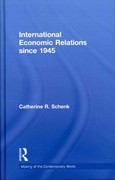Question
1.Suppose that in a closed economy GDP is equal to 14,000, Taxes are equal to 4,000, Consumption equals 7,000, and Government expenditures equal 5,000. How
1.Suppose that in a closed economy GDP is equal to 14,000, Taxes are equal to 4,000, Consumption equals 7,000, and Government expenditures equal 5,000. How much is private saving? How much is public saving? How much is national saving?
A. 7,000; 1,000; 8,000.
B. 3,000; -1,000; 2,000.
C. 3,000; 1,000; 2,000.
D. 7,000; -1,000; 6,000.
2.What would happen in the market for loanable funds if the government were to abolish the tax on income earned from interest paid on savings?
A. The demand for loanable funds would shift to the right.
B. The demand for loanable funds would shift to the left.
C. The supply of loanable funds would shift to the left.
D. The supply of loanable funds would shift to the right.
3.Suppose the nominal interest rate on savings deposits is 6% and inflation is running at 3%. Which of the following statements is true?
A. You are better off spending your money now rather than saving since the real interest rate is (+)3%.
B. You are better off spending your money now rather than saving since the real interest rate is (-)3%.
C. You are better off saving your money rather than spending it now since the real interest rate is (+)3%
D. You are better off saving your money rather than spending it now since the real interest rate is (-)3%.
4.Suppose the government raises the tax on corporate investment. What would happen in the market for loanable funds?
A. The demand for loanable funds curve will shift to the left and interest rates will fall.
B. The supply of loanable funds curve will shift to the right and interest rates will rise.
C. The demand for loanable funds curve will shift to the right and interest rates will rise.
D. The supply of loanable funds curve will shift to the left and interest rates will rise.
5.Which of the following statements is true?
A. If taxes fall short of government spending we call that public saving.
B. If government spending exceeds taxes then we call that budget deficit.
C. If government spending exceeds taxes then we call that public saving.
D. If taxes exceed government spending we call that private saving
6.Bank C promises to pay a compound annual interest rate of 6 percent, while Bank S pays a 12 percent simple annual interest rate on deposits. If you deposit $1,000 in each bank, after 25 years, your deposit in Bank C equals ________, while your deposit in Bank S equals ________.
A. $3,292; $3,000
B. $2,500, $17,000
C. $4,000; $4,292
D. $4,292; $4,000
Step by Step Solution
There are 3 Steps involved in it
Step: 1

Get Instant Access to Expert-Tailored Solutions
See step-by-step solutions with expert insights and AI powered tools for academic success
Step: 2

Step: 3

Ace Your Homework with AI
Get the answers you need in no time with our AI-driven, step-by-step assistance
Get Started


